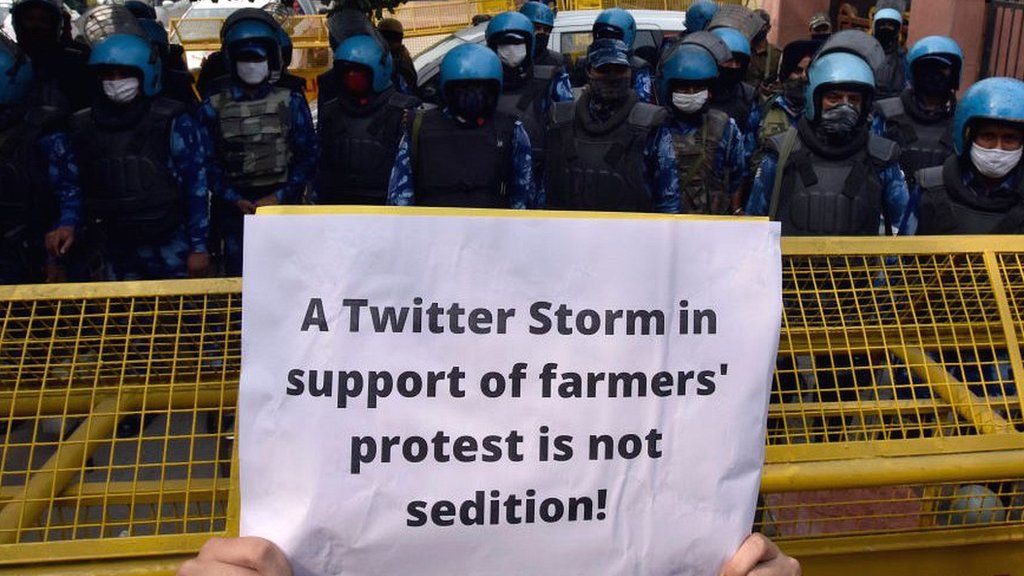In this two-parter, the authors make a case for the unconstitutionality of Section 124A of the IPC, considering the recent change in Indian jurisprudence, namely that pre-constitutional laws like the IPC are no longer provided with a presumption of constitutionality. They proceed by showing that ‘the doctrine of reading down’, applying which sedition was previously saved, is a mere corollary of the presumption of constitutionality granted to laws; the absence of which will make reading down Section 124A impermissible, and consequently ultra-vires Article 19(1)(a).
In a remarkable decision, the Supreme Court recently directed that the 152-year-old colonial provision on sedition shall be kept in ‘abeyance’ and no further FIRs should be registered under it, until its re-examination is completed by the Union government. The Apex Court was considering a constitutional challenge to Section 124A of the Indian Penal Code (‘IPC’) when this order was passed. This provision had earlier come into the limelight when an NCRB report highlighted that between 2015-2020, out of the 548 arrests made under Section 124A, only 12 persons, i.e., 2.18% were convicted. Such an abysmally low rate of conviction lends some substance to the popular claims of the high degree of misuse and over-broad application of this provision.
This article argues that Section 124A is unconstitutional considering the recent change in Indian jurisprudence, namely that pre-constitutional laws like the IPC are no longer provided a presumption of constitutionality. We shall do so by showing that ‘the doctrine of reading down’, applying which sedition was previously saved, is a mere corollary of the presumption of constitutionality granted to laws; the absence of which will make reading down Section 124A impermissible, and consequently ultra-vires Article 19(1)(a).
Reading Down: The Premise of Kedarnath
In Kedarnath Singh v. State of Bihar, the Supreme Court upheld the constitutionality of Section 124A. However, this decision did not give unqualified assent to sedition, but merely ‘read down’ Section 124A to make it compliant with Article 19(2). Essentially, since sedition restricts Article 19(1)(a), which guarantees free speech and expression, it can only be constitutionally permitted as long as the grounds for the restriction are one of the eight enumerated under Article 19(2). These grounds include instances where the speech may threaten ‘public order’, ‘security of the state’ or ‘friendly relations with foreign states’ etc. However, the text of Section 124A restricts speech even if it merely incites “[h]atred, contempt or disaffection” against the existing government. As the court in Kedarnath agreed [25], a literal reading of Section 124A would have made it ultra vires Article 19.
The court, therefore, relied on the interpretative doctrine of ‘reading down’, which requires that when a certain provision can be interpreted in two ways, one which would render it unconstitutional and another that would preserve its constitutionality, the court shall side with the latter reading of the text. The over-broad text of Section 124A was read down to limit its application to those acts “involving intention or tendency to create disorder, or disturbance of law and order, or incitement to violence”, and not merely those exciting disaffection, which had a far lower threshold. Through this process of reading down, the grounds for sedition now matched those under Article 19(2), making it constitutional. The upshot of this is that it was only the active reading down of sedition which made it constitutional, without which, Section 124A entirely would’ve been struck down. Therefore, since sedition’s constitutionality rests on the ‘Doctrine of Reading Down’, it becomes pertinent to re-examine the reason why laws should be read down in the first place.
Excavating the Underpinning of the Doctrine of Reading Down: The Presumption of Constitutionality
The principle of Presumption of Constitutionality (‘PoC’) entails that when a statute legislated by the parliament is challenged, the judiciary shall defer to the legislature and presume its constitutionality; thereby shifting the burden to prove its unconstitutionality on the petitioners. This doctrine rests on two broad reasons: (i) the legislature is validly elected, representative and hence, capable of recognising the needs of the people (RK Dalmia v. SR Tendolkar); and (ii) the legislature has abided by prescribed constitutional limitations.
We argue that the Doctrine of Reading Down emanates from the principle of PoC. When the court faces two equally valid interpretations of the statute, one making it constitutional and another unconstitutional, it would be logical for it to side with the former as it has presumed constitutionality. As explained in Cellular Operators v. TRAI [72], since the legislature can never intend to draft an unconstitutional law, a purposive interpretation would lead us to apply the process of reading down – ‘sustaining’ the initially presumed constitutionality. This was more clearly affirmed by the court in DTC v. DTC, holding that “[T]he techniques of construction known as reading down and severance are corollaries of presumption of constitutionality” [209]. Essentially, PoC casts a burden on the courts to attempt to sustain the validity of a law, which is why it engages in reading down. In the absence of a PoC therefore, it would be impermissible for the court to read down rather it would have to adjudicate based on the prima facie text of the law in question.
(Part II of the blog can be found here.)
Siddhant Pengoriya and Sukarm Sharma are second-year undergraduate law students at the National Law School of India University, Bangalore.
Edited by Utkarsh Mani Tripathi and published by Avani Vijay.



